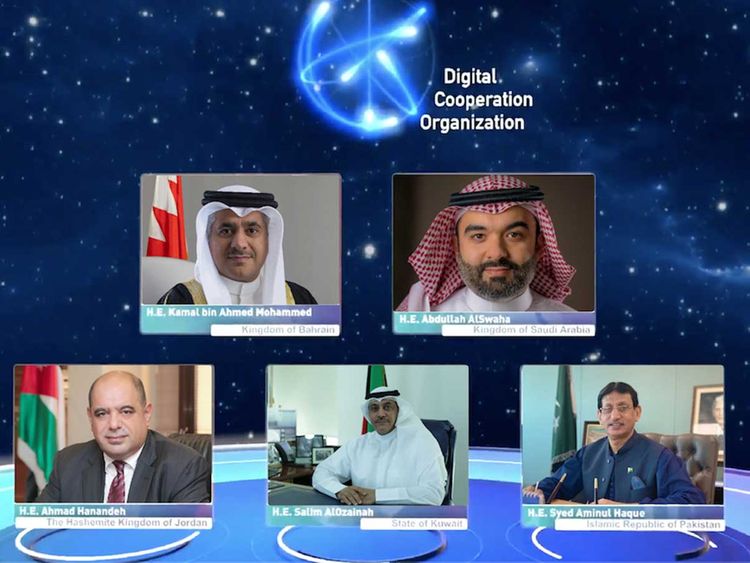Pakistan has joined hands with Saudi Arabia, Bahrain, Jordan, and Kuwait and founded the Digital Cooperation Organization; a organisation set up to promote the vision of a digital future for the countries.
Vision of a Digital Future | Expanding the Digital Economy
Pakistan Joins #DCO (Digital Cooperation Organization) as a founding member with the Kingdom of Saudi Arabia, Bahrain, Jordan, and Kuwait to flourish its #DigitalEconomy.#DigitalPakistan #DigitalTransformation pic.twitter.com/ofOQKsHyao
— Ministry of IT & Telecom (@MoitOfficial) November 30, 2020
Officials from every nation came together on Thursday to launch the DCO. These included Pakistan’s Minister of IT & Telecommunications, Mr Syed Aminul Haque.
The DCO, driven by the vision to digitise these nations in the near future, aims to empower women, the youth, and the entrepreneurs of today in helping the governments realise a digital economy for their respective countries, and coming up with creative and innovative solutions to the problems being faced everyday by their citizens.
“We are joining hands together towards a commitment to drive consensus on digital cooperation,” says H.E. Abdullah Amer Al-Swaha, Saudi Arabia’s Minister of Communications and IT. “[We aim] to make sure that we seize an opportunity for our youth, our women and our entrepreneurs with the ambition to grow our combined digital economy to one trillion dollars in the next 3-5 years.
“Our future prosperity will depend on the digital economy. But it can only reach its full potential if we are able to make governments work together collectively with businesses, and entrepreneurs so they can survive and thrive, expand their depth into current markets and open doors for everyone into new ones.”
“For Pakistan,” said Pakistani Ambassador Raja Ali Ejaz (to Arab News), “with a talented and well-trained pool of human resources, the DCO presents a unique opportunity for rapid progress in all spheres of life. Pakistan has joined the Digital Cooperation Organisation as a founding member and acknowledges the initiative of Saudi Arabia. Pakistan considers it an important step in post COVID-19 economic recovery of the founding countries.”
Even Makhdoom Shah Mahmood Qureshi, Pakistan’s Foreign Minister, showed his appreciation towards the founding members of the organisation. He especially praised the efforts of Abdullah Al-Swaha in making DCO a reality.
Muhammad Khurram Khan, a professor of cybersecurity at King Saud University and founder CEO of the Global Foundation for Cyber Studies and Research in Washington, DC, has also expressed his appreciation for the organisation. He says that its launch in these ‘unprecedented’ times can prove to be an amazing strategy for the five nations.
“With the mission of achieving prosperity, socioeconomic development, and implementing digital transformation, the countries setting up the DCO aspire to become leading digital economies in the world which is commendable.”
He then added that by 2025, the global digital economy will be worth an estimated $23 trillion with a GDP share of 24.3 percent. “This provides the DCO with a great opportunity to build a platform for their tech-savvy youth, women, entrepreneurs, and indigenous industry to flourish and compete with their global contemporaries and boost their digital competitiveness.”
The DCO can prove to be an excellent strategic step in the near future for the five countries involved, and possibly many other countries and regions that choose to join the organisation.












